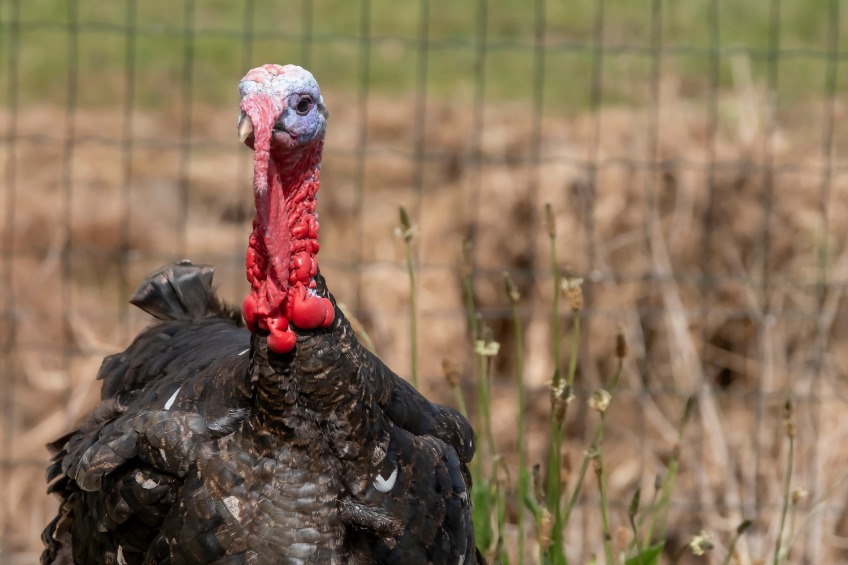
One of the UK's leading turkey producers has called for a bird flu vaccine to be fast tracked to help combat the growing threat of the disease.
The call is part of a five-point strategy set out by Paul Kelly, managing director of Kelly Turkey Farms in Essex, in order to save the future of free range Christmas turkeys.
Over 500,000 free range turkeys have been affected by the UK's bird flu crisis through infection or culling, with many farmers who supply this market reluctant to risk losing a flock next year.
Mr Kelly, who also has a hatchery supplying day-old turkey poults to more than one third of these farmers, shares their concerns about the risks involved in producing free range poultry without firm assurance about its viability.
"Most countries are now discussing vaccination as the only credible way forward. We have lost the war," he said.
"We have the added disadvantage that we cannot lock down wild birds that are the primary source of infection.
"Talking to people in the know, it would seem there are vaccines available that would be very effective and, given the green light, they could be produced very quickly.
"So, firstly, we need to get vaccine approval fast tracked - just as we did with the covid vaccines," Mr Kelly explained.
The vaccine programme should only be for highly susceptible poultry such as turkeys, ducks and geese, or used in geographical areas deemed as high risk.
Secondly, monitoring these vaccinated flocks could be carried out by private veterinary practices to test and check that flocks are not carrying a field strain of the virus, Mr Kelly said.
The Animal and Plant Health Agency (APHA) would not therefore need any extra resource.
Thirdly, Mr Kelly calls for a proper financial compensation scheme: "Christmas poultry producers will have to make some big decision at the beginning of 2023.
"In the absence of being able to vaccinate and also a compensation scheme fit for purpose, will they risk growing turkeys in 2023?
"Many small independent producers have been wiped out and the larger companies that have had infected premises will have had big losses."
Fourthly, he calls for a more consistent and practical approach to the cleaning and disinfecting of premises.
He said: "This can be a nightmare for many if the case officer is not as practical and pragmatic as they could be. We all want to make sure infected premises are free of the virus.
"But some of the requirements can be interpreted in a ridiculous way that adds huge, unnecessary cost to the clean out. I have colleagues who are pulling their hair out with what the Environment Agency is stipulating."
Mr Kelly added: "Cleaning a shed is a pretty basic and simple process. APHA guidelines are open to interpretation and need to be made as simple, and not as complicated, as possible.
"For example, to clean a range by taking six inches of top soil off an entire field is not viable or indeed necessary. This was actually suggested by one case officer."
His final point concerns the current 12-month resting period, which needs to be addressed urgently to allow seasonal producers to get back into production.
Mr Kelly asked: "Research shows the virus survives for up to six weeks outside of the host - so why do we need to rest the site for 12 months?
"We need a science-based approach - not a figure that is plucked out of the air."
